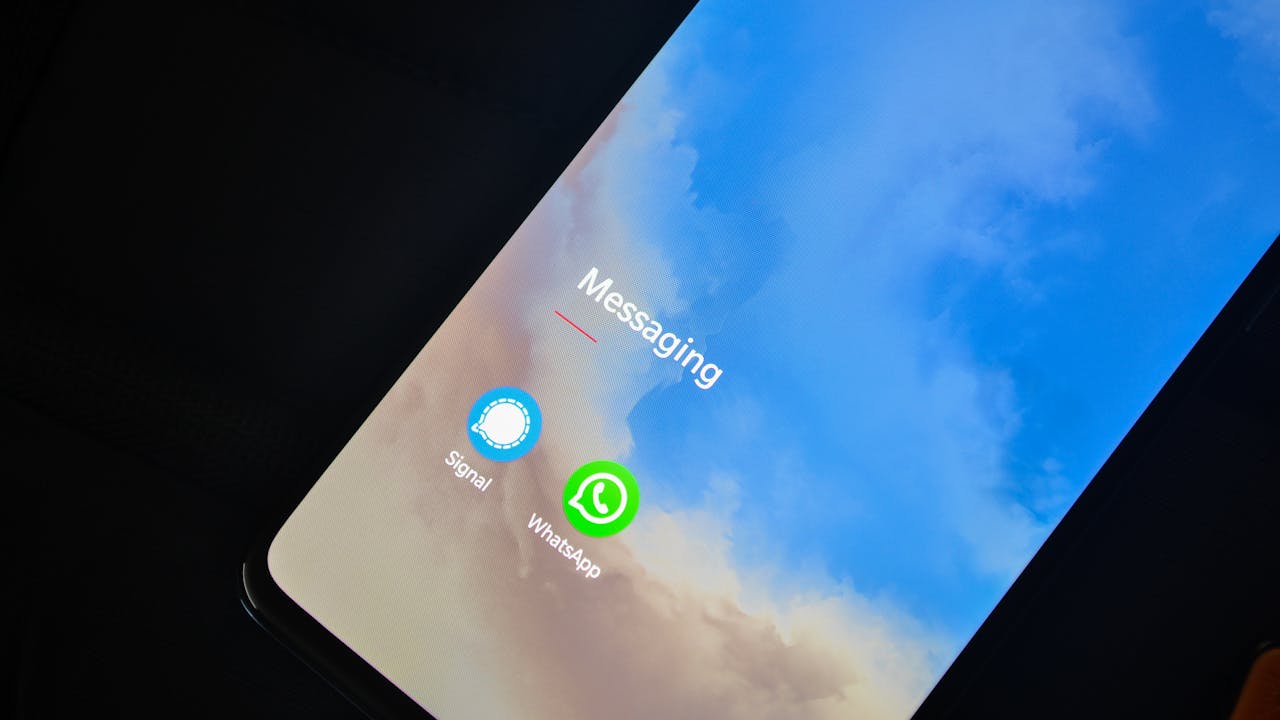How to Overcome WhatsApp Hacking: A Complete Guide to Protecting Your Privacy
This article will discuss in depth how to overcome WhatsApp hacking, from recognizing the signs of hacking to concrete steps to secure your account.

Kapanlagi.com - WhatsApp has become one of the most popular messaging applications in the world. However, along with its popularity, concerns about user privacy and security have also emerged. This article will discuss in depth about how to know the WhatsApp content of others and the steps to protect your privacy.

WhatsApp Application (credit: pexels.com)
WhatsApp monitoring refers to the act of accessing or monitoring conversations, messages, calls, or other activities on someone's WhatsApp account. This can be done through various methods, ranging from the use of built-in app features to more complex methods.
Monitoring can occur for various reasons, such as:
1. Parents wanting to supervise their children's online activities
2. Partners suspicious of infidelity
3. Companies monitoring the use of work devices by employees
4. Individuals concerned about the security of their personal data
It is important to understand that monitoring without consent is illegal and violates someone's privacy. In many countries, including Indonesia, this action can be subject to severe legal penalties.
Although unauthorized monitoring is not recommended, there are some legal methods that can be used to know someone else's WhatsApp content:
WhatsApp Web allows users to access their WhatsApp account through a computer browser. This can be a legitimate way to monitor WhatsApp activity if you have permission from the account owner. The steps include:
WhatsApp has a real-time location sharing feature that allows users to share their location with specific contacts. This can be a legitimate way to know someone's whereabouts if they agree to share their location with you.
WhatsApp provides an option to back up chats to cloud storage. If you have access to the Google Drive or iCloud account linked to the target WhatsApp account, you may be able to view the backed-up chat history. However, this must be done with the account owner's permission.

WhatsApp Application (credit: pexels.com)
Monitoring WhatsApp without permission is not only an ethical issue but can also lead to serious legal consequences. In Indonesia, this action may violate several laws, including:
1. Law No. 11 of 2008 on Information and Electronic Transactions (ITE Law)
2. Law No. 36 of 1999 on Telecommunications
Violations of these laws can result in imprisonment for up to 10 years and fines in the billions of rupiah. Additionally, illegal monitoring can also damage trust and personal relationships.
To protect your WhatsApp privacy, here are some steps you can take:
This feature adds an extra layer of security by requiring a PIN when registering your phone number with WhatsApp.
Control who can see your profile photo, status, and info through the Settings > Account > Privacy menu.
Always log out of your WhatsApp Web session after using it, especially on public devices.
Make sure you are always using the latest version of WhatsApp to get the latest security features.
Enable the disappearing messages feature for sensitive conversations so that messages automatically delete after a certain time.

WhatsApp Application (credit: pexels.com)
Responsible use of WhatsApp involves several ethical principles:
1. Respect the privacy of others
2. Do not share personal information without permission
3. Be cautious when sharing sensitive content
4. Use the security features provided by the app
5. Educate yourself and others about safe social media use
If you have concerns about someone's online activity, there are several legal alternatives to consider:
Discuss your concerns directly with the person involved. Honest and open communication is often the best solution.
For parents who want to monitor their children's online activity, there are many legal and ethical parental control apps available.
Companies can implement clear policies regarding the use of work devices and monitor employee activity transparently and legally.

WhatsApp Application (credit: pexels.com)
There are many myths circulating about WhatsApp monitoring. Let’s clarify some of them:
Fact: WhatsApp uses end-to-end encryption, which makes hacking very difficult. Most cases of “hacking” are actually the result of security vulnerabilities on the user's device or social engineering tricks.
Fact: Most apps that claim to be able to hack WhatsApp are scams or malware. Legal apps cannot decrypt WhatsApp without physical access to the target device.
Fact: Although technical monitoring does require high expertise, many cases of “monitoring” occur through simple methods such as accessing WhatsApp Web without permission or using social engineering.
As technology advances, the challenges of maintaining digital privacy become increasingly complex. Several trends to watch out for:
1. Increased use of artificial intelligence in data analysis
2. Development of stronger encryption technologies
3. Emergence of stricter data privacy regulations in various countries
4. Growing public awareness of the importance of digital privacy
It is important for users to continuously update their knowledge about digital security and keep up with the latest developments in privacy technology.

WhatsApp Application (credit: pexels.com)
Here are some frequently asked questions regarding WhatsApp monitoring:
A: It is very difficult to monitor WhatsApp without physical access to the device. Remote methods claimed by some parties are often illegal or violate laws.
A: Some signs that may indicate monitoring include suspicious activity on your account, messages or calls you did not make, and notifications about logins from other devices.
A: A VPN can enhance the security of your internet connection, but it does not directly prevent WhatsApp monitoring. A VPN does not protect against malware that is already installed on your device.
Understanding how to know someone else's WhatsApp content is important, but it is even more important to respect privacy and use technology ethically. Focusing on open communication, utilizing available security features, and educating about digital security are positive steps that can be taken. Remember that privacy is a fundamental right, and respecting others' privacy is an important part of digital ethics.
(kpl/dhm)
Cobain For You Page (FYP) Yang kamu suka ada di sini,
lihat isinya
This article will discuss in depth how to overcome WhatsApp hacking, from recognizing the signs of hacking to concrete steps to secure your account.
Here is a collection of 350+ funny and entertaining word guessing quizzes that you can try.
Here is a collection of 350 romantic, inspirational, and meaningful wedding quotes.
For those of you who want to watch anime with unique themes. Here are some of the best anime featuring strong female protagonists who are inspiring and extraordinary.
Discover stylish tips for pairing white clothes and hijab to look elegant on Eid.
Find inspiration for simple yet luxurious hijab OOTD colors for Eid that will make you look enchanting.
If you want to know the lyrics of this religious song, here are the lyrics of Khoirol Bariyyah by Syakir Daulay.
If you are confused about what side dish to look for, some vegetable menus can be a choice. Here are some practical vegetable recipes that you can try to meet your daily nutritional needs.
For KLovers looking for super simple sweet food, this toast menu is a must-try. Here are some delicious toast recipes that are easy to make and worth trying.
What are these dramas like? Here’s a list of ambitious Korean dramas featuring women and sincere men that might be an exciting theme for you to follow.
The Eid holidays are a great time to gather with family. One way to enjoy time together is by watching movies. There are many Indonesian films that are suitable for watching with family during the Eid holidays.
Let's get straight to it, check out these funny THR Lebaran quotes that are suitable to send to parents, friends, or to use as social media captions. Who knows, after this you might just receive a Lebaran envelope, right?